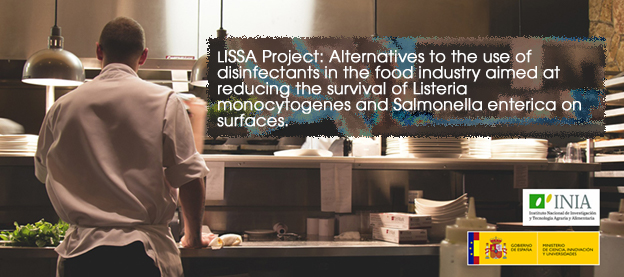Fundación MEDINA participates in the LISSA project, Alternatives to the use of disinfectants in the food industry aimed at reducing the survival of Listeria monocytogenes and Salmonella enterica on the surfaces, coordinated by Dr. Joaquín Venancio Martínez Suárez of the Department of Food Technology of INIA ( NATIONAL INSTITUTE OF RESEARCH AND AGRICULTURAL AND FOOD TECHNOLOGY) and funded by the Ministry of Science, Innovation and Universities within the State R&D&I Program Oriented to the Challenges of Society.
This project, which also has the collaboration of the Navarra Industry Association (AIN) and Embutidos Fermín, will investigate new antibiofilm materials and compounds as alternatives to the use of disinfectants in the food industry, in order to minimize the survival of pathogenic microorganisms on food contact surfaces.
First, the behavior of L. monocytogenes and S. enterica on different materials used in the food industry, such as stainless steel, will be analyzed. Subsequently, the survival of different strains on substrates with antibiofilm surface coatings expressly prepared during the project will be evaluated. In a second phase, the biofilms will be exposed to currently authorized disinfectants, including enzymatic products, and to new antibiofilm compounds identified during the project.
The identification of new biocidal molecules with antibiofilm activity will be done from Fundación MEDINA’s natural extracts of microbial origin, carrying out a high-throughput screening of a subset of the MEDINA library which contains 200,000 extracts of bacteria and fungi from a great diversity of ecological niches.
Although the proposed research is not applicable immediately, it could be the basis for identifying new antibiofilm materials or compounds that could be transferred to the relevant industrial sector for their development in the field of cleaning and disinfecting food processing plants. In the long run, the hope is to contribute to reducing the incidents of risk and alarms regarding food-related illnesses.





